Twenty Years Under King Mohammed VI : Domestic Developments Kingdom of Morocco has made significant economic progress since 1999
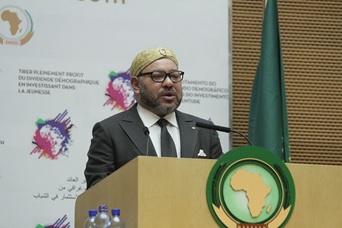
PERSISMA, RABAT – On July 30, Morocco’s ruler Mohammed VI was commemorating twenty years on the throne. In 1999, he inherited a kingdom of twenty-eight million citizens facing considerable socioeconomic challenges, including a lack of basic necessities in rural areas, high poverty, a labor market and GDP too reliant on agriculture, and unemployment hovering around 14% nationally and nearly double that among youths. Moreover, his father’s four-decade reign had been marked by severe political repression and human rights abuses, albeit capped by a controlled opening of the political system and civil society shortly before succession.
In the twenty years since then, Morocco has made significant strides in several areas of economic and human development. At the same time, Mohammed VI has largely adopted his father’s preference for limited political openings, eschewing the deeper liberalization many hoped he would introduce. In the coming decades, Morocco’s ability to remain a stable exception to the chaotic regional rule will likely depend on the viability of this implied bargain.
Political / The 2011 reforms of the Constitution
In 2011, King Mohammed proposed constitutional reforms. These included amendments to reduce his political powers, devolve more privileges to the regions, and solidify the parliament’s authority.
Through the application of the 2011 reforms, King Mohammed VI managed to reach his ultimate goal which was no other than to consolidate democracy in Morocco.
The new Constitution was adopted by a national referendum.
The referendum officially transformed Morocco into a constitutional monarchy with a democratic parliament and separation of powers.
These changes have allowed the North African country to mark significant progress and flourish in a wide variety of sectors, compared to other nations in the Arab world.
Morocco has sculpted a system of governance which renders the country unique in the Middle East region, as well as well-known in the international community. Morocco’s achievements and growth bear the 20-year-old signature of its King; Mohammed VI.
Economical Progress
Mohammed VI’s scorecard includes a number of noteworthy economic achievements. Morocco’s GDP rose from $42 billion in 1999 to $110 billion by 2017 (in 2017 U.S. dollars); economic growth, while still beholden to variable weather effects on agriculture, has averaged 3-4% annually, with the IMF recently predicting an improved economic outlook in the medium term; and the country now ranks second in the region after the United Arab Emirates on the World Bank’s Ease of Doing Business Index. Signaling a shift from his father, Mohammed invested in Morocco’s long-neglected north early on, one result of which was Tanger Med, the largest port on the Mediterranean Sea and in all of Africa.
Diplomacy
King Mohammed has expanded Morocco’s ties with the African continent and the Middle East and has reinforced the country’s long-standing alliance with the US.
Today, Morocco has cooperation agreements with several countries across Africa, further promoting economic development, security, and religious moderation.
Morocco’s return to the African Union (AU)
Morocco’s late King Hassan II decided to withdraw the country from the AU in 1984, after the pan-African organization publicly acknowledged the self-proclaimed Sahrawi Arab Democratic Republic (SADR) as a member state.
The “empty chair” policy that Morocco had adopted since it left the Organization of African Unity (today’s African Union), has done more harm than good to its stance on Western Sahara and its relationships with the continent’s nations.
After the re-admission of Morocco during the 28th Summit of the African Union, King Mohammed VI delivered a speech, underlying the position of Morocco in Africa.
The monarch discussed the projects created to solidify South-South partnership as well as Morocco’s initiative to provide Sub-Saharan immigrants emergency assistance.
“It was necessary to withdraw from the AU; it has enabled Morocco’s action to be refocused in Africa,” King Mohammed VI said in 2017.
“We have thought it through carefully and it is now so obvious!” he added. “It is time to return home; at a time when the Kingdom is among the most developed African nations and when a majority of Member States looks forward to our return, we have decided to join our family again.”
King Mohammed VI’s tour to three key countries in East Africa in 2017, all of which have diplomatic relations with the Polisario, confirmed Morocco’s foreign policy orientation that the best way to fight the Polisario and its backers is from inside the African Union.
The agreements the King signed with Rwanda, Tanzania and Ethiopia showed that Morocco sought to turn the economy, infrastructure, and agricultural projects into the cornerstones of its relationships with the East African countries.
By rendering the economy into the main tool of Morocco’s foreign policy in Africa, King Mohammed VI managed to strengthen the country’s position as one of the major players on the continent, as well as to indicate that the country is determined to break away from the “empty chair” policy it had implemented over the past four decades.
Migration Programs
Tolerance is not just a rhetorical aspect of Morocco’s domestic and foreign policy. The country stood out in the African continent as the sole country that has implemented migration policies offering residency status to migrants.
Morocco has “welcomed people coming from sister nations to this African land, with their different religions, cultures, traditions, family habits and lifestyles,” King Mohammed said.
Under the King’s initiative, the North African country organized two campaigns for migrants to regularize their status and launched several programs to ensure the proper integration of migrants, asylum-seekers and their families.
Moroccan Sahara
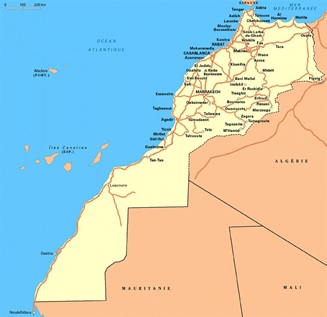
Morocco’s Autonomy Plan is the most recent initiative towards the resolution of the West Sahara conflict. The proposed solution to the conflict was presented by King Mohammed to the UN in April 2007.
In a letter to Kofi Annan, the seventh Secretary-General of the United Nations, the King confirmed Morocco’s commitment to a consensual solution to end the dispute over the Saharan territory.
In the same letter, the King informed the UN Secretary-General that Morocco was preparing to submit an Autonomy Project within the framework of the territorial integrity and the national unity of the nation.
After the Autonomy Plan was successfully devised, King Mohammed VI re-established the Royal Advisory Council for Saharan Affairs (CORCAS).
CORCAS then visited several countries to present Morocco’s objectives. A number of international countries welcomed Morocco’s plan as the best possible solution to the four-decade-long conflict.
Morocco’s Autonomy Plan, entitled “The Moroccan Initiative for Negotiating an Autonomy for Statute for the Sahara Region,” is the fruit of a dialogue with the local populations and political parties over the ongoing issue.
This initiative offers autonomy to the inhabitants of Western Sahara under the sovereignty of Morocco. It aims at reconciling the Kingdom’s territorial integrity with respect to the people’s need to manage their own affairs.
The solution consists of an “extended autonomy” which is aimed to satisfy the aspirations of the Saharawi populations by respecting their cultural identity while it simultaneously defends the territorial unity of Morocco.
Under the plan, the autonomous region would be given the prerogative to run its affairs democratically, through legislative, executive, and judicial bodies enjoying exclusive powers.
According to King Mohammed VI, Morocco’s challenge over the West Sahara conflict is to reclaim the “Moroccanness” of the disputed territory.
To do so, the King said that Moroccans, especially the diplomats and officials working to convince the global community on Morocco’s position over the issue, should equip themselves with “clarity” with regards to history and “far-sightedness” concerning present and future challenges.
“The group for the territorial integrity of Morocco” issued a statement to reiterate its support for Morocco’s Autonomy Plan at the 41st session of the Human Rights Council in June 2019.
The group’s member countries are Saudi Arabia, the UAE, Qatar, Bahrain, Kuwait, the Sultanate of Oman, Jordan, Comoros, Gabon, Burundi, Djibouti, Senegal, the Central African Republic, the Democratic Republic of Congo, and Guinea.
Finding a solution for the conflict, according to the group, will make it “possible to realize the aspirations of the African and Arab peoples for integration and development.”
In May 2019, 13 members of the Security Council supported the adoption of Resolution 2486, which extended the mandate of MINURSO, the UN peacekeeping operation, in Sahara for six months.
Côte d’Ivoire, a non-permanent member of the Security Council, also welcomed the adoption of Resolution 2468.
Kuwait, a non-permanent member of the Security Council, has also backed Morocco’s territorial integrity, expressing respect of Moroccan sovereignty over the disputed region.
Women’s Advancement
Additional bright spots have appeared in school enrollment, women’s advancement, and poverty reduction. In 1999, fully one-third of primary-age children were not attending school. Following a series of reforms, primary school enrollment now stands at 97%, with the biggest gains among young girls. In 2004, the monarchy reformed the code of family law (mudawanna), granting women the rights to divorce, child custody, and self-guardianship while raising the minimum marriage age to eighteen. Poverty has fallen substantially since 1999, when roughly 16% of the population and 30% of rural inhabitants were living at or below the poverty line; today those figures are 4% and 19%. Notwithstanding their higher poverty rates, nearly 100% of rural communities now have access to electricity, compared to only 18% in 1999.
Following the push toward mass electrification, Morocco embarked on a major renewable energy development project, partly to reduce its reliance on hydrocarbon imports and partly to mitigate the adverse effects of climate change. One result has been the development of the Noor solar power plant, the largest such complex in the world and one that could ultimately make Morocco an energy exporter to Europe and Africa.
The kingdom is also a regional outlier in its approach to countering Islamist extremism. Four years into Mohammed’s reign, Morocco was rocked by the worst terrorist attack in its history, with twelve suicide bombers blowing themselves up at various tourist and Jewish sites in the capital, killing thirty-three civilians. The attack prompted the king—who as “Commander of the Faithful” is also the country’s chief religious authority—to launch comprehensive reforms such as bringing mosques and Islamic schools under tighter state control, stripping religious education curricula of extremist content, promoting Sufism and other streams of Islam believed to promote moderation, and establishing an imam training academy for students from North and West Africa and, increasingly, Europe.
These reforms have not immunized the kingdom from homegrown extremism, as attested by the estimated 2,000 Moroccans who joined the Islamic State and other jihadist groups in Syria between 2012 and 2016. Still, through a blend of heightened security measures and religious reforms, the country has evidently contained the threat of extremism better than most of its regional peers.
Technology
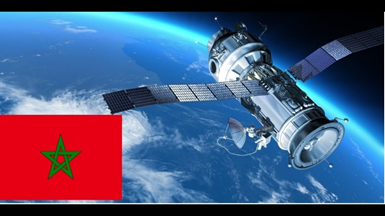
In this period; Morocco was launch a second surveillance satellite from the Kourkou base in Guyane. The second satellite baptized Mohammed VI B boosts Morocco’s earth observation technology after the country successfully sent to orbit Mohammed VI A reconnaissance satellite that can take high-resolution multi-purpose images.
Together, the two satellites will give Morocco an edge in terms of mapping and land surveying activities, spatial planning, preventing and managing natural disasters, and monitoring environmental changes and desertification thanks to the high resolution optical images they are able to take.
Infrastructure / Transport
Morocco unveiled the first high-speed railway system in Africa, connecting the coastal city of Tangier with the capital, Rabat, and Casablanca, the country’s business hub — and eventually the tourist destinations of Marrakech and Agadir.
Speculate to Accumulate
High-speed trains fit within a wider program of infrastructure spending in Morocco, including the world’s largest solar power plant and several major ports, that is intended to stimulate a sluggish economy.
The project forms part of the Moroccan Solar Energy Programme (NOOR)
In this period, Morocco was completing the world’s largest concentrated solar power farm. The site near the city of Ouarzazate aims to produce enough energy to power over one million homes by the end of the year and reduce carbon emissions by an estimated 760,000 tons per year.
The first part of a three-phase project of the thermosolar farm was officially turned on in 2016 by His Majesty Mohammed VI of Morocco.
Africa has tremendous potential for solar generation that remains largely untapped.
“The Government is continuing its reforms and major investments to improve the business climate and attract foreign investors,” reported the African Development Bank in its “Economic Outlook 2016” for Morocco.
Benefits of the Noor Ouarzazate Solar Complex
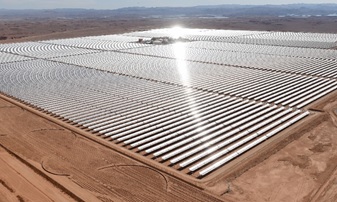
The project forms part of the Moroccan Solar Energy Programme (NOOR), which aims to develop five solar complexes with a combined capacity of approximately 2GW by 2020 to meet the energy demands of the country, which depends on 95% imports.
The Noor I CSP plant is expected to offset 240,000t a year of CO2 emissions, and generate approximately 1,000 construction jobs and 60 permanent jobs during the operations and maintenance phase. The Noor II and Noor III plants combined will help offset 533,000t of CO2 emissions a year.
Battles against religious extremism
The leadership of King Mohammed VI and his steadfast commitment to promoting the values of tolerance, inter-religious dialogue, and coexistence, at home and abroad, have become a distinctive feature of Morocco over the last two decades.
King Mohammed VI has advocated on multiple occasions for countries working together to achieve a new world order for peace while highlighting the need for coexistence and tolerance of diversity.
Some of the King’s initiatives in the religious field include the establishment of the Mohammed VI Institute for Training Imams, Morchidines and Morchidates, and the Mohammed VI Foundation for African Ulema in 2015.
Morchidines and Morchidates aim to properly equip Imams from Mali, Libya, Tunisia, Côte d’Ivoire, Gabon, Guinea, the Maldives and Nigeria to combat religious extremism. The organization has trained 1,391 African Imams since its creation. The African Ulema was established to help preserve the values of authentic Islamic tolerance.
Counter terrorism programs
In 2015, King Mohammed introduced the Central Bureau of Judicial Investigation (BCIJ) to monitor security threats across the country and join the efforts of foreign security agencies in countering terrorism.
According to the BCIJ, between 2015 and 2018, Morocco dismantled 57 terrorist cells and arrested 3,129 suspects, 292 of whom had criminal records. The country’s security forces also foiled 361 terrorist actions.
One recent report revealed that Morocco has adopted efficient counter-terrorism and de-radicalization approaches which have proved more efficient than those applied in Egypt and Tunisia.
In a recent interview, the head of BCIJ, Abdelhak El Khiame, said that Morocco always offers to share its strategy in the area with European partners. This has helped them to impede “several attacks in several countries, including France, Spain, Italy, Denmark, and Belgium.”
“This professionalism has given more value to the Moroccan security services that are still receiving requests from their European counterparts,” El Khiame said.
In 2018, under the King’s initiative, Morocco launched the “moussalaha” (reconciliation) program, a multidimensional policy aiming at the reintegration of prisoners in society and the modernization of security institutions.
At the request of King Mohammed VI, Morocco offered royal pardon to several defendants convicted of terror-related crimes. Many former terror suspects applied to join the program.

Kunjungi juga kami di www.ppwinews.com dan www.persisma.org
Ingin berkontribusi dalam gerakan jurnalisme warga PPWI…?Klik di sini

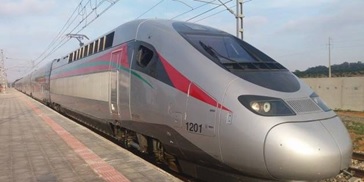
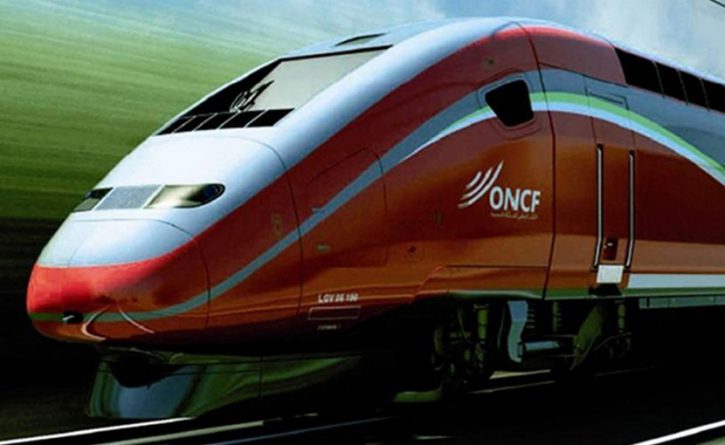
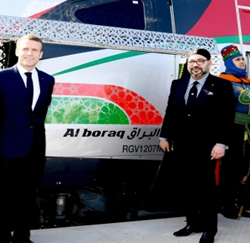
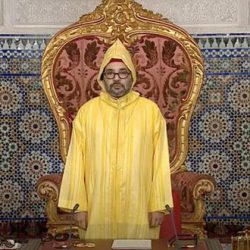
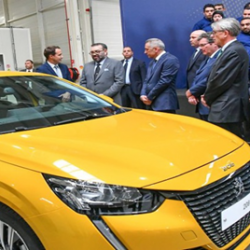
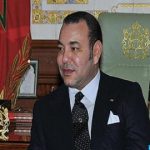
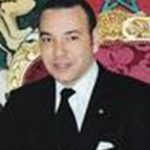



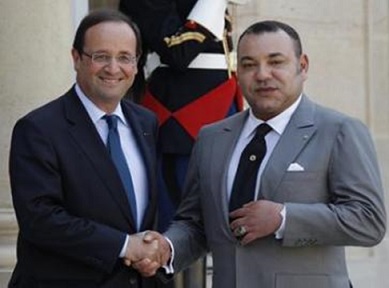
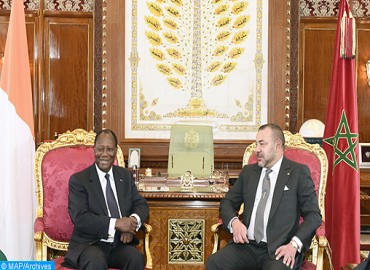

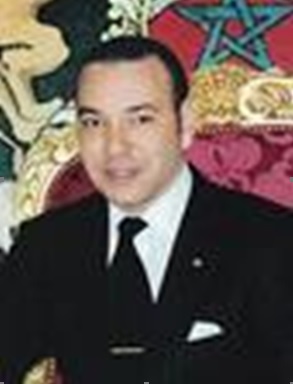

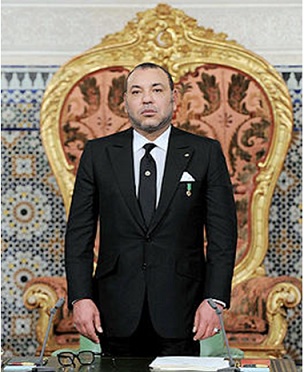
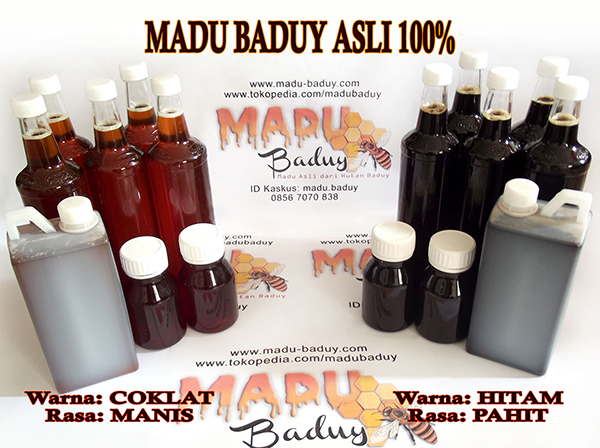
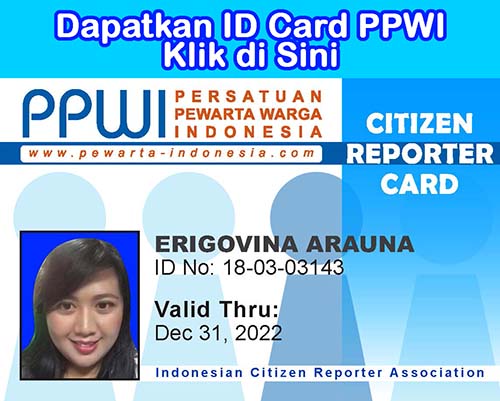


New Comments